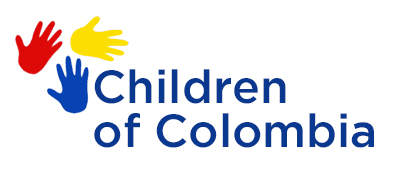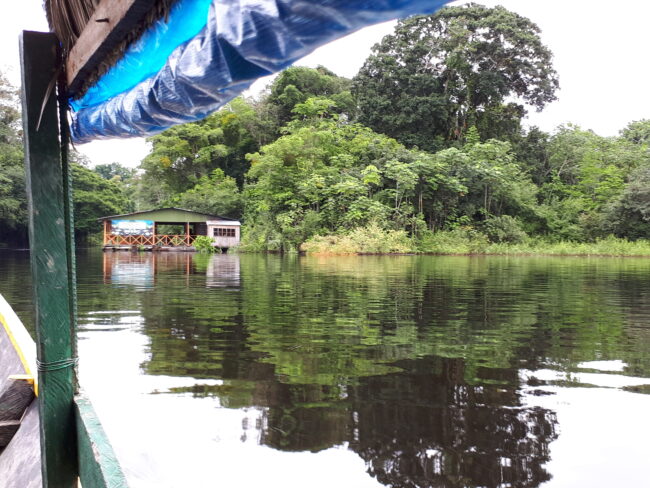Marelvi Laureano, one of Fundacion Natütama‘s educators, has written a first hand account of the impact of the Coronavirus pandemic on the indigenous Ticuna community living in the small town of Puerto Nariño in the Colombian Amazon. Marelvi has a job at the mayor’s office. She also works for Natütama teaching in her local community about the importance of protecting the environment and conserving its rare, endangered species such as the Amazon’s pink river dolphins, sloths and manatees.
The account is inspiring for Marelvi’s ability to find rays of hope and positivity in the midst of the crisis. Despite illness, food shortages, poverty and serious problems due to erosion of the river banks on which the town is situated, Marelvi says families have been brought closer together, people have appreciated their cultural ties with the land, and plants and animals have thrived during lockdown. This is a shorter extract. You can read the original version in Spanish here Natutama – Marelvi’s Account Covid 2020
“For me, life in the time of the pandemic was very difficult, being locked in without contact with other people. Also, we weren’t able to 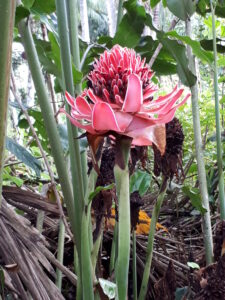 fulfil our personal objectives or Natütama’s work of reaching out to the communities.
fulfil our personal objectives or Natütama’s work of reaching out to the communities.
“Furthermore, it was tough economically since most people rely on selling goods for their livelihood and they weren’t able to go out to sell them. It was also hard for me because the mayor’s office was closed and I was out of work for the pandemic, although we continued working with the Foundation (Natütama) researching local folk tales for future lessons who gave us a bonus. My family and I got Covid-19 and I had a relapse and had to buy medicines and get plant remedies. My husband couldn’t go out to get our daily food but … did get work on the cargo boats bringing food supplies to the town.
“At home, my daughters were bored, especially the little one who wanted to go out to play.
“We were also saddened and worried by the erosion of the Zancudillo (the banks of the river) which were washed away with part of the village’s port/dock.
“On the bright side, local flora and fauna flourished in those pandemic months. The children didn’t leave their houses and the flowers and plants grew and looked beautiful and numbers of fish and other wild animals increased.
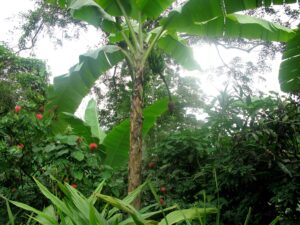 “On the other hand most people devoted themselves to cultivating the chagra, the gardens in the jungle where indigenous people grow their fruit and vegetables, and they realised how important the land was and is for their food and diet. On my plot, I was also able to sow some bananas and fruit with the help of my daughters. I was able to be with my daughters every day – normally with work we do not have time to be together constantly. This improved my relationship with my eldest daughter and I was able to gain her confidence so she could tell me personal things that she had stored up. It also greatly strengthened my family relationship with my mom and sisters.
“On the other hand most people devoted themselves to cultivating the chagra, the gardens in the jungle where indigenous people grow their fruit and vegetables, and they realised how important the land was and is for their food and diet. On my plot, I was also able to sow some bananas and fruit with the help of my daughters. I was able to be with my daughters every day – normally with work we do not have time to be together constantly. This improved my relationship with my eldest daughter and I was able to gain her confidence so she could tell me personal things that she had stored up. It also greatly strengthened my family relationship with my mom and sisters.
For me and my family, this pandemic was a learning curve and all our historic cultural values – including the importance of traditional medicine and the management of the chagra as a source of life – were reinforced. I realised we humans are not prepared for such drastic changes, but little by little we came to appreciate the real value of things.
In conclusion, the situation was difficult economically, socially, culturally, psychologically and health and education suffered but it did have positive effects for the natural world. With these words I close the experience during the pandemic.”
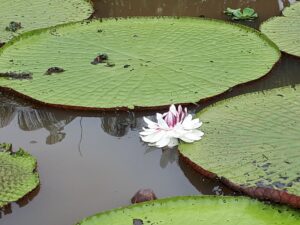
2
